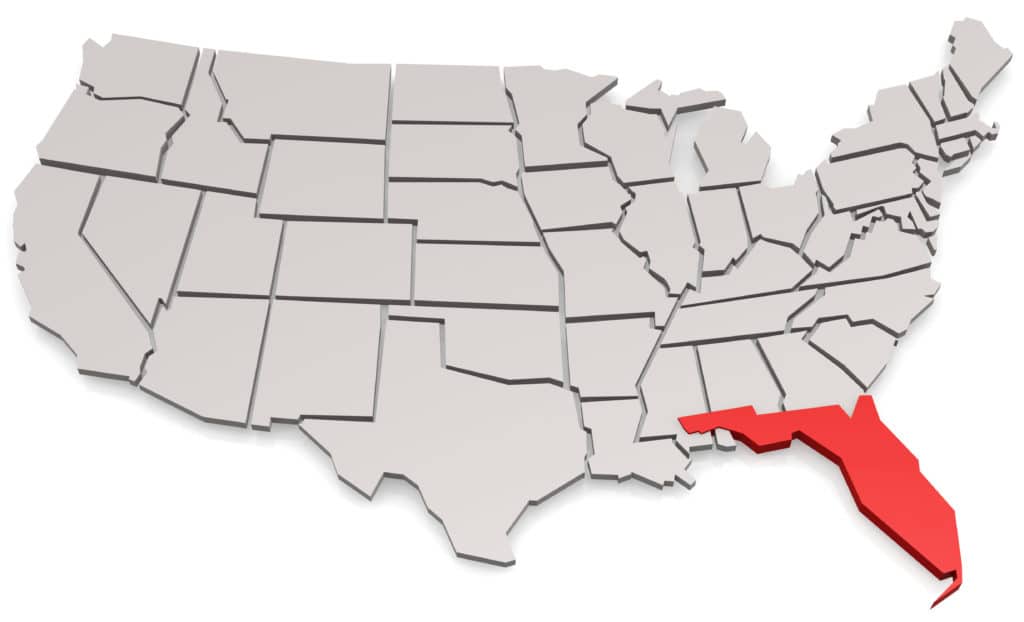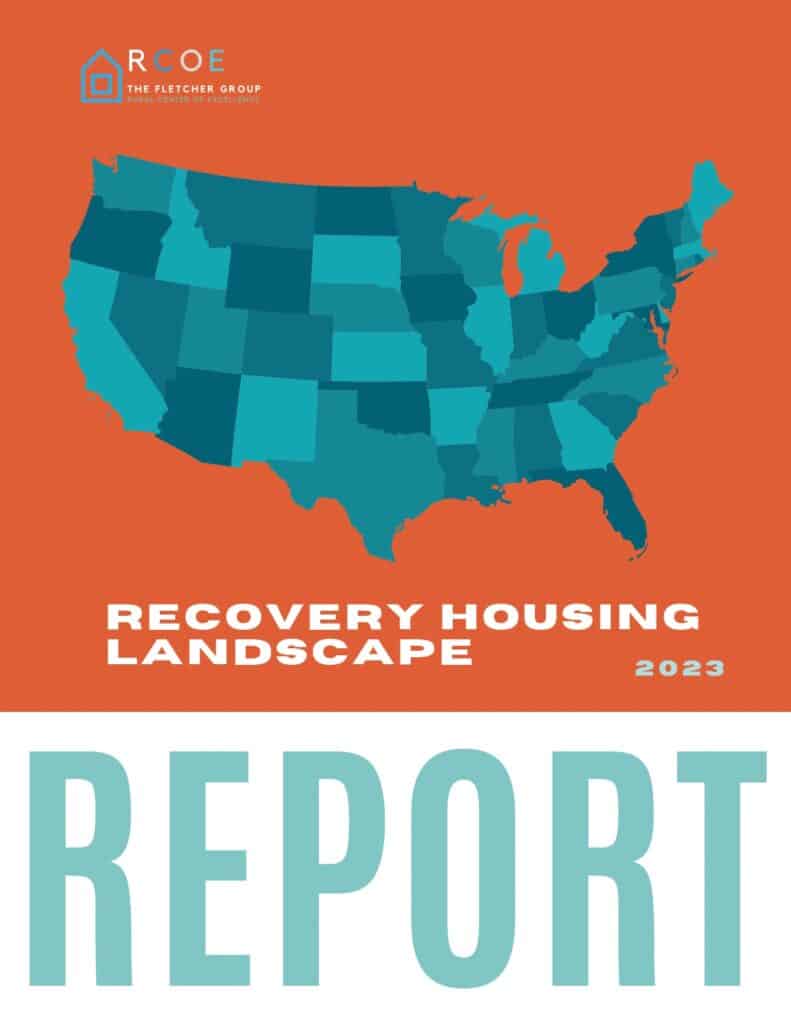
Florida State Laws, Policies and Funding
RH terminology used by the Florida Department of Children and Families (DCF), Substance Abuse and Mental Health Program Office Recovery Residence –
https://www.myflfamilies.com/services/substance-abuse-and-mental-health/samh-providers/recovery-residence-administrators-and
Accreditation, Certification, and State Licensing Requirement: Certification required to be listed on the state registry and for referral to a home.
RH Law(s):
Chapter 397 (2021) Florida does not license recovery residences. Instead, in 2015 the Legislature enacted sections 397.487–397.4872, F.S., which establish voluntary certification programs for recovery residences and recovery residence administrators, implemented by private credentialing entities.
Florida SB 1120 (2020) Requires the Department of Children and Families to provide exemptions from recovery residence-related employment disqualification for certain offenses, and modifies patient-brokering laws to exempt discounts, waivers of payment, or payments not prohibited by the federal anti-kickback statute or regulations, among other provisions.
https://www.flsenate.gov/Session/Bill/2020/1120/?Tab=BillHistory
CS/CS/HB 21 (2015) Substance Abuse Services; Requires DCF to create voluntary certification program for recovery residences; requires DCF to approve credentialing entities to develop & administer certification program; requires background screening of recovery residence employees; provides for denial, suspension, or revocation of certification; directs DCF to approve at least one credentialing entity by specified date to develop & administer certification program; requires DCF to publish list on its website.
https://www.flsenate.gov/Session/Bill/2015/0021
RH Legislation: HB421 (2022) None/unknown
Regulations: None/unknown
SABG Program: The “Planned Priority Areas” documents for your state’s Substance Abuse Prevention and Treatment Block Grant (SABG) program and Community Mental Health Services Block Grant (MHBG) program do not specifically mention recovery housing as a priority, nor do they list recovery support services as an allowable activity. To learn more about specific recovery housing activities that are eligible for funding through these grant programs, please reach out to your state’s Single State Agency (SSA) that’s responsible for administering these funds by visiting https://healthandwelfare.idaho.gov/services-programs/behavioral-health/about-substance-use-disorder
SOR Program: Your state’s Department of Health and Social Services (DHSS) has previously funded recovery activities using State Opioid Response (SOR) funds. To learn more about specific recovery housing activities that are eligible for funding through this grant program, please reach out to your state’s Single State Agency (SSA) that’s responsible for administering these funds by visiting https://healthandwelfare.idaho.gov/services-programs/behavioral-health/about-substance-use-disorder
Medicaid Funding: Nothing in the state Medicaid plan suggests direct support for RH, however, certain covered activities could evolve to be provided in RH settings include peer support, case management, life skills, and counseling.
NARR Affiliate Status: Yes, Florida Association of Recovery Residences (FARR)
Housing Assistance Funding: https://www.floridahousing.org/
Certified Recovery Residences
https://www.farronline.org/certifiedresidence
Florida Funders
Lost Tree Village Foundation
The Lost Tree Foundation was established in 1982 and is based in North Palm Beach, Florida. The Foundation was established by residents who wanted to give back to their communities. The Foundation’s mission is to strengthen communities and support people in need.
Regions: The Lost Tree Foundation serves communities throughout Martin County and partially rural Palm Beach County, Florida.
Issues Supported: The Lost Tree Village Charitable Foundation focuses on issue areas including addiction services, alcoholism, community development, education, and mental health care.
Grant Process and Application: The deadline for a letter of inquiry is in August, and the deadline for grant applications usually falls in November. Find out more information by visiting the Foundation’s website.
Grant-Making Per Year: In FY 2020, the Foundation provided grants in the amount of $3.2 million.
Recovery and Supportive Housing Grantee Example: Sunset House is a grantee based in Palm Beach Gardens, Florida, serving partially rural Palm Beach County. Sunset House offers a sober living facility for men who have completed treatment for substance use disorder. Services are designed to help clients maintain sobriety and reintegrate into society.
Florida Opioid Settlement Funds
Total Settlement Funds in Florida
- $1.3 billion from distributors, $300 million from Johnson & Johnson
Fund Distribution
- State and local governments may each receive up to 55% of funds
Timeline
- Funds from three distributors will be paid over 17.5 years
- Funds from Johnson & Johnson will be paid over 9 years
Application Process
- Not established
Key Contacts
- Governor Ron DeSantis, GovernorRon.Desantis@eog.myflorida.com, 800-342-3557
- Attorney General Ashley Moody, contact form, 1-866-966-7226
- Kylie Mason, Communications Director, Florida Office of the Attorney General, (850)-245-0150
Key Links
- Florida Memorandum of Understanding
- Governor Ron DeSantis News Release
- Florida Opioid Settlements Portal
How About Your County?
To get a quick overview of the resources available in your county, including gaps that may need to be addressed, visit the Recovery Ecosystem Index Map developed through a partnership between the Fletcher Group Rural Center of Excellence, the NORC Walsh Center at the University of Chicago, and East Tennessee State University.
Need More Info?

A year in the making by a staff of ten, the Fletcher Group’s 82-page Recovery Housing Landscape Report provides an in-depth overview of the most recent laws, policies, and funding affecting recovery housing. You’ll find sections devoted to state laws, SAMHSA funding, Medicaid, corrections, and housing assistance plus numerous links to valuable resources and official documents. To see the complete downloadable report, click the image to the left.
This web page is supported by the Health Resources and Services Administration (HRSA) of the U.S. Department of Health and Human Services (HHS) as part of an award totaling $13.7 million with 0% financed with non-governmental sources.
The contents are those of the author(s) and do not necessarily represent the official views of, nor an endorsement, by HRSA, HHS, or the U.S. Government.